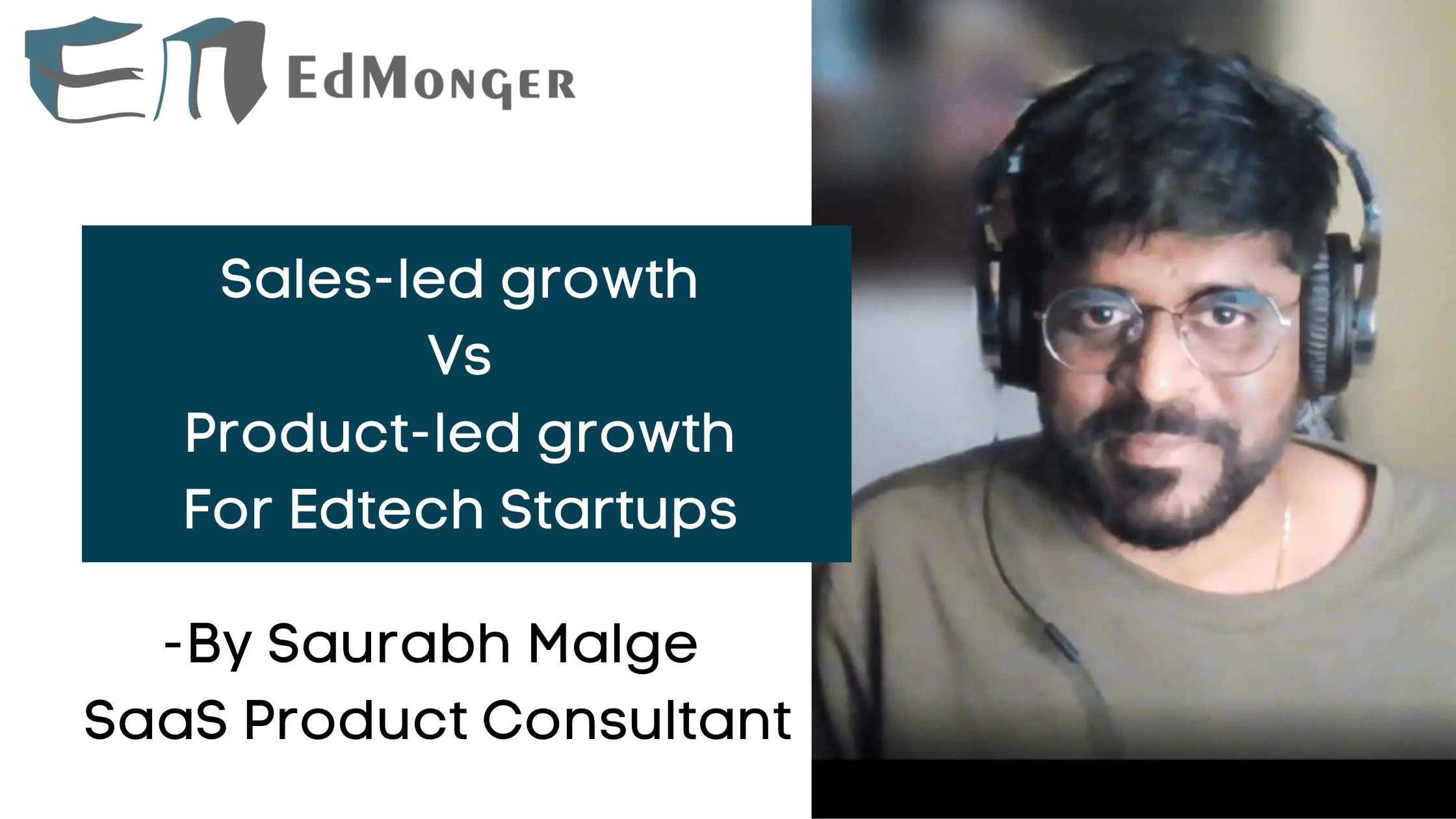The EdTech startup industry’s rapid expansion has brought forth many business strategies, each striving to capture a significant share of this booming market. Among these, sales-led growth and product-led growth have emerged as the two dominant approaches.
In this article, let us delve into the intricacies of each strategy, evaluate their impact on the EdTech landscape, and provide valuable insights backed by data, research, and expert opinions.
Sales-Led Growth in EdTech Startup
Definition and Overview:
Sales-led growth emphasizes the role of a robust sales force in driving revenue by acquiring new customers and expanding existing relationships. In the EdTech startup realm, this strategy often involves forging partnerships with educational institutions, offering tailored solutions to meet their specific needs, and investing heavily in sales and marketing efforts.
Advantages:
Rapid results: Sales-led growth can deliver quick results, focusing on establishing solid relationships with key stakeholders and addressing their immediate needs.
A targeted approach: By addressing the pain points of specific segments, companies can develop targeted solutions that cater to the unique needs of their customers
Also, Read Advanced marketing strategies for edtech startups.
Disadvantages:
High costs: Sales-led growth often requires significant investments in sales and marketing efforts, potentially leading to lower profit margins.
Scalability concerns: Tailoring solutions to individual customers may limit the ability to scale effectively, especially in the highly fragmented EdTech market.
Examples:
Blackboard: This EdTech giant has pursued a sales-led growth strategy, focusing on forging partnerships with educational institutions and offering comprehensive learning management systems.
Instructure (Canvas): Similarly, Instructure has built its Canvas LMS platform around strong sales and marketing efforts, targeting the higher education market.
Product-Led Growth in EdTech Startup
Definition and Overview:
In an edtech startup, product-led growth prioritizes the development of innovative, user-centric products that drive customer acquisition and retention through their intrinsic value. In the EdTech space, this often translates to creating engaging, accessible, and scalable learning solutions that resonate with end-users.
Advantages:
Sustainable growth: Product-led growth can yield long-term success, as it relies on the product’s inherent value to drive customer adoption and retention.
Lower customer acquisition costs: By focusing on product excellence, companies can attract and retain customers organically, reducing the need for aggressive sales and marketing campaigns.
Disadvantages:
Slower initial growth: Product-led growth may take longer to gain traction, as it relies on the gradual spread of product adoption and word-of-mouth.
Competition: With the EdTech market becoming increasingly crowded, standing out with a superior product can be challenging.
Examples:
Duolingo: This language learning app has grown significantly through its product-led strategy, offering an engaging and accessible user experience that has resonated with millions of users.
Khan Academy: By providing high-quality, free educational content, Khan Academy has experienced remarkable growth driven by the value of its product offering.
Comparative Analysis and Future Outlook
Market Trends:
Increasing emphasis on product-led growth: As the EdTech market becomes more saturated, companies are increasingly adopting product-led growth strategies to differentiate themselves and attract customers based on the merits of their offerings.
Hybrid strategies: Some companies are finding success by blending sales-led and product-led growth strategies, leveraging the strengths of each approach to maximize their market impact.
Article by
SaaS Product Consultant




